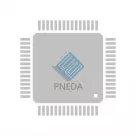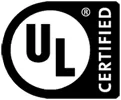How can MCUS improve system performance in robot motor control design

In the development of modern robot technology, the motor control system plays a crucial role. Microcontroller (MCU) is the core of motor control system, and its performance directly affects the motion accuracy, efficiency and stability of robot. Therefore, how to improve the performance of robot motor control system by MCU technology is an important research direction in the field of robot design and manufacturing.
An MCU, or microcontroller unit, is a microcomputer that integrates a processor core, memory, and input/output interfaces. It has the characteristics of small size, low cost and low power consumption, and is especially suitable for control intensive application scenarios, such as robot motor control. Modern MCUS also have high-speed processing capabilities, rich communication interfaces and flexible programming functions to meet the needs of complex motor control.
In the design of robot motor control, the use of microcontroller (MCU) is very important, which can greatly improve the system performance. Motor control is the foundation of all robotic systems, and the MCU is the key to accurate, effective and reliable control. Here are some ways to use an MCU in a robot motor control design to improve system performance.
First, choosing the right MCU is critical to improving system performance. The selection of an MCU should be based on factors such as required processing power, memory size, power consumption, interface, and cost. For example, if a robot needs to perform complex image processing and artificial intelligence tasks, then an MCU with high processing power and large memory may be required. At the same time, the MCU should have sufficient interfaces to connect to motors, FXL2TD245L10X sensors and other devices.
Second, programming is the key to improving system performance. When programming, a real-time operating system (RTOS) should be used in order to respond in real time to changes in the state of the motor. RTOS can ensure the execution time of critical tasks, thereby improving the stability and response speed of the system. In addition, the RTOS can manage multiple tasks, such as motor control, sensor reading and communication, which can improve the efficiency and reliability of the system.
In terms of motor control algorithm, PID (proportional integral-differential) control can be used, which is a classic feedback control algorithm and can provide good performance. However, PID control requires correct parameters to work, which requires detailed system modeling and parameter debugging during the system design phase. If possible, modern control theory can be used, such as model predictive control (MPC), which provides better performance but requires a more powerful MCU.
Furthermore, MCUS can be used to implement real-time systems. Real-time systems can complete specific tasks in a certain amount of time, which is very important for robots. For example, if a robot needs to grab an object within a specific amount of time, then it needs a real-time system to ensure that the task is completed in a timely manner. MCUS can do this by implementing a real-time operating system (RTOS).
In addition, the MCU can be used to implement the communication function of the robot. This includes communication with other robots, communication with remote servers, communication with users, and so on. In this way, MCUS can help robots achieve more complex tasks, increasing their autonomy and intelligence.
Finally, optimization is the process of continuously improving system performance. Optimization mainly includes hardware optimization and software optimization. Hardware optimization is mainly to improve the efficiency and reliability of the motor, including the selection of the appropriate motor, driver and power supply. Software optimization is mainly to improve the efficiency and reliability of code, including optimizing algorithm, improving code structure and reducing errors. MCUS can be used to implement energy management for robots. Through intelligent energy management, robots can reduce power consumption and extend battery life while maintaining high performance.
In summary, the MCU plays a crucial role in the design of robot motor control. The system performance of the robot can be greatly improved by selecting the appropriate MCU, realizing the effective motor control algorithm, realizing the real-time system, realizing the communication function and energy management. These methods could help designers develop higher-performing, more intelligent robots.
The Products You May Be Interested In
 |
AMI-26-20-3 | LINE FILTER 250VAC 20A CHASS MNT | 3366 More on Order |
 |
AMI-27A-10-3 | LINE FILTER 250VAC 10A CHASS MNT | 7974 More on Order |
 |
AMI-M12V-6-60-B | LINE FILTER 250VAC 60A CHASS MNT | 5058 More on Order |
 |
AMI-26A-16-3 | LINE FILTER 250VAC 16A CHASS MNT | 7686 More on Order |
 |
AMI-M11P-6-30-C | LINE FILTER 250VAC 6A CHASS MNT | 4014 More on Order |
 |
AMI-29-12-3 | LINE FILTER 110/250VAC 12A CHAS | 5976 More on Order |
 |
AMI-29B-8-3 | LINE FILTER 110/250VAC 8A CHAS | 3078 More on Order |
 |
AMI-23A-20-3 | LINE FILTER 250VAC 20A CHASS MNT | 3600 More on Order |
 |
AMI-26-16-3 | LINE FILTER 250VAC 16A CHASS MNT | 7380 More on Order |
 |
AMI-M12D-1-10-D-2 | LINE FILTER 250VAC 1A CHASS MNT | 3924 More on Order |
 |
AMI-M12S-7M-5-B-2 | LINE FILTER 250VAC 7A CHASS MNT | 5184 More on Order |
 |
AMI-M11A-1-1-B | LINE FILTER 250VAC 1A CHASS MNT | 4302 More on Order |
 |
AMI-23A-8-1 | LINE FILTER 250VAC 8A CHASS MNT | 3402 More on Order |
 |
AMI-M11K-7-20-B | LINE FILTER 250VAC 7A CHASS MNT | 4266 More on Order |
 |
AMI-29A-3-1 | LINE FILTER 110/250VAC 3A CHAS | 8406 More on Order |
 |
AMI-22-12-3 | LINE FILTER 250VAC 12A CHASS MNT | 8496 More on Order |
 |
AMI-M11R-7M-3-B-2 | LINE FILTER 250VAC 7A CHASS MNT | 3690 More on Order |
 |
AMI-B11B-13-1-B | LINE FILTER 250VAC 1A CHASS MNT | 3508 More on Order |
 |
AMI-27B-36-6 | LINE FILTER 110/250VAC 36A CHASS | 4446 More on Order |
 |
AMI-M12Y-6-20-D | LINE FILTER 250VAC 20A CHASS MNT | 4554 More on Order |
 |
AMI-M11Q-6-30-B | LINE FILTER 250VAC 30A CHASS MNT | 3490 More on Order |
 |
AMI-27-3-1 | LINE FILTER 110/250VAC 3A CHAS | 8298 More on Order |
 |
AMI-M11J-6-30-B | LINE FILTER 250VAC 30A CHASS MNT | 3492 More on Order |
 |
AMI-B11AW1-13-4-B | LINE FILTER 250VAC 4A PCB | 4176 More on Order |









